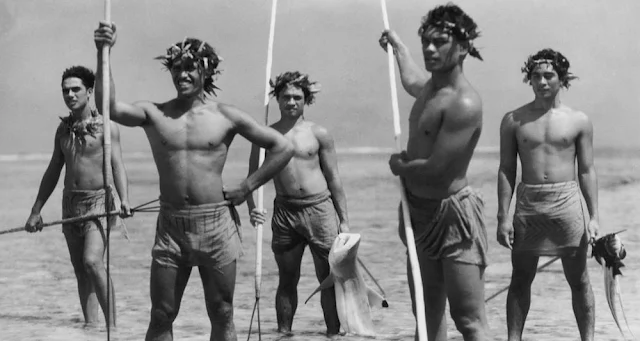
Cast: Matahi, Anne Chevalier, Bill Bambridge, Hitu. Screenplay: F.W. Murnau, Robert J. Flaherty. Cinematography: Floyd Crosby. Film editing: Arthur A. Brooks.
Humankind is its own serpent in the garden. If you expect F.W. Murnau's Tabu: A Story of the South Seas to be yet another fable about innocence spoiled by civilization, you're wrong. For Murnau, the fault lies in humans themselves, in their insistence on proscribing natural and instinctive behavior. The taboo that precipitates the crisis in the filn is not imposed by the colonizing Europeans, although we see the consequences of the clash between their value system and that of the islanders well enough, but in the tribal imperative that prevents Matahi and Reri from consummating their love. Reri is chosen to become the tribe's sacred virgin, an honor she doesn't want, so she flees with Matahi and is pursued by the tribal elder, Hitu, who is tasked with putting the lovers to death. On the French-colonized island where they land, they encounter a culture they don't understand, particularly its attitude toward money, a foreign concept that will be their undoing. But the valorizing of virginity produces the central taboo of the film. Much has been made of the "gay gaze" in the film: the camera's lingering on beautiful male bodies, which is attributed to Murnau's own gayness. But if Tabu is in any way a product of Murnau's sexual orientation, it's in the emphasis on the central theme: the proscription of desire. In Murnau's case it was the desire for others of his own sex, so the virginity taboo is a metaphor for the rejection of queerness that Murnau encountered in his own life.